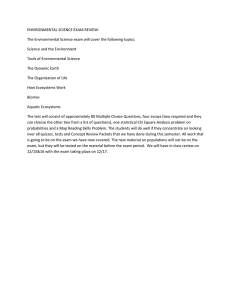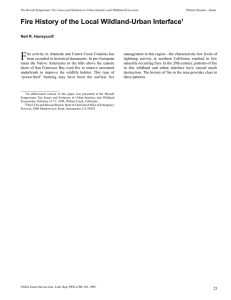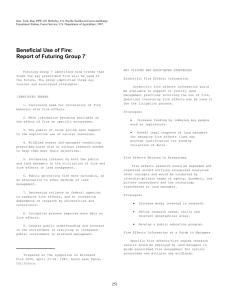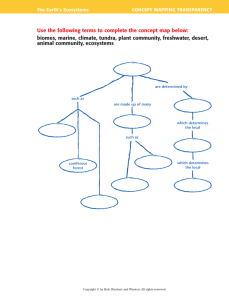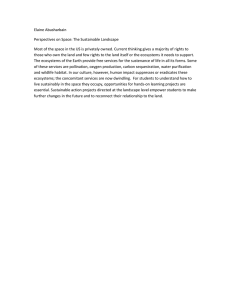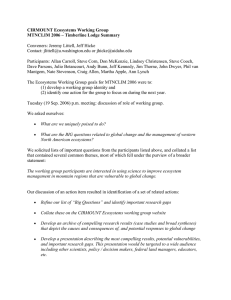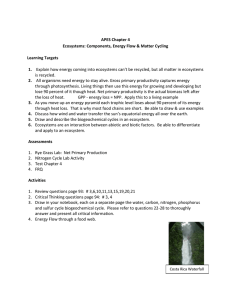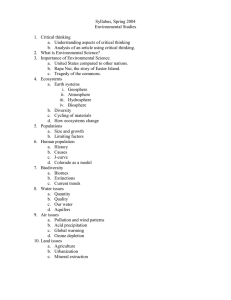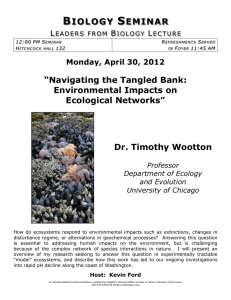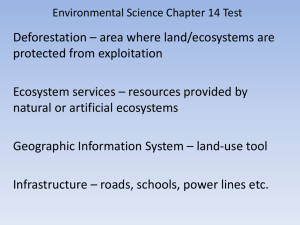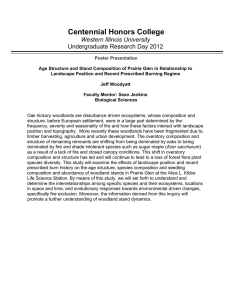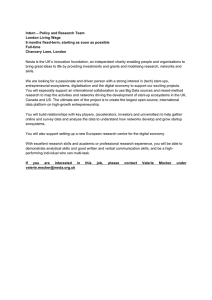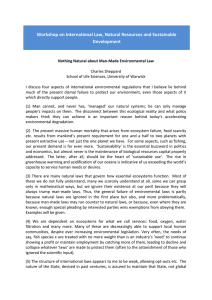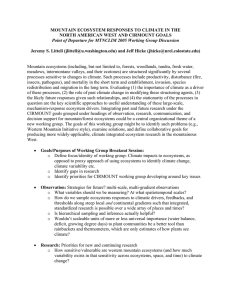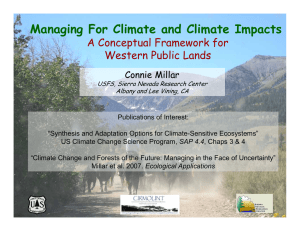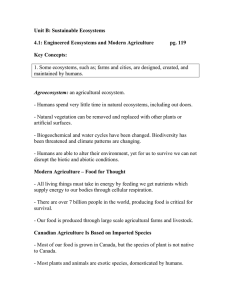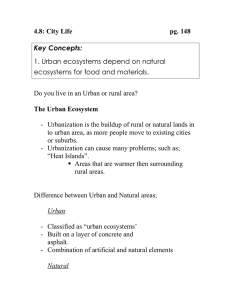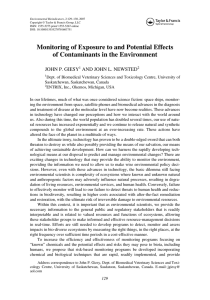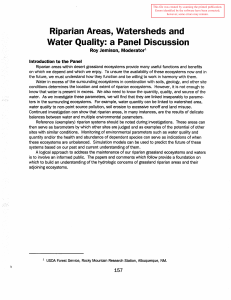The Impact of Imported Water on Hardwoods Range Ecosystems Thomas Scott
advertisement
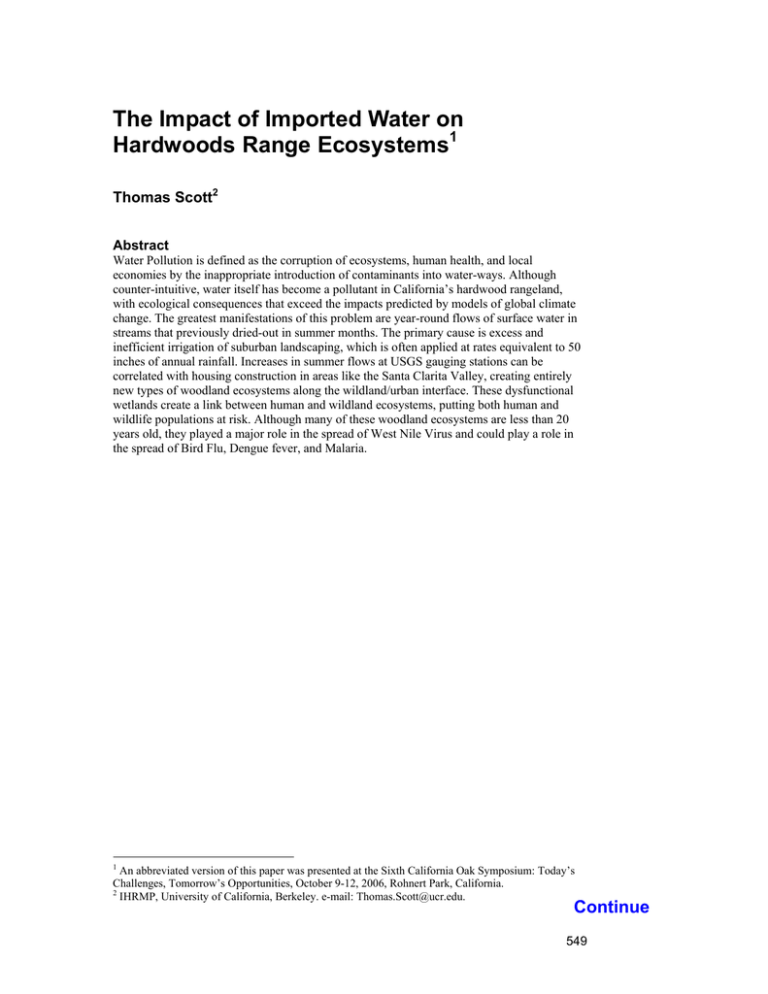
The Impact of Imported Water on Hardwoods Range Ecosystems1 Thomas Scott2 Abstract Water Pollution is defined as the corruption of ecosystems, human health, and local economies by the inappropriate introduction of contaminants into water-ways. Although counter-intuitive, water itself has become a pollutant in California’s hardwood rangeland, with ecological consequences that exceed the impacts predicted by models of global climate change. The greatest manifestations of this problem are year-round flows of surface water in streams that previously dried-out in summer months. The primary cause is excess and inefficient irrigation of suburban landscaping, which is often applied at rates equivalent to 50 inches of annual rainfall. Increases in summer flows at USGS gauging stations can be correlated with housing construction in areas like the Santa Clarita Valley, creating entirely new types of woodland ecosystems along the wildland/urban interface. These dysfunctional wetlands create a link between human and wildland ecosystems, putting both human and wildlife populations at risk. Although many of these woodland ecosystems are less than 20 years old, they played a major role in the spread of West Nile Virus and could play a role in the spread of Bird Flu, Dengue fever, and Malaria. 1 An abbreviated version of this paper was presented at the Sixth California Oak Symposium: Today’s Challenges, Tomorrow’s Opportunities, October 9-12, 2006, Rohnert Park, California. 2 IHRMP, University of California, Berkeley. e-mail: Thomas.Scott@ucr.edu. Continue 549
